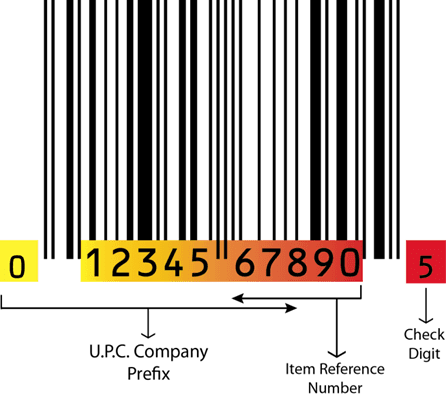UPC vs ISRC: Unraveling the Codes of the Music Industry

UPC vs ISRC: Unraveling the Codes of the Music Industry
In the intricate realm of music, identification and organization play a pivotal role in ensuring seamless distribution, tracking, and royalty management. Two essential codes, UPC and ISRC, stand as gatekeepers to this organized world, each serving a distinct purpose in the music ecosystem.
UPC: The Mark of Physical Products

UPC Code
Universal Product Code, commonly known as UPC, is a 12-digit barcode that serves as a unique identifier for physical products, including CDs, DVDs, and vinyl records. It acts as a global language, enabling retailers to scan, track, and manage inventory with precision. UPCs also facilitate the identification of products on streaming platforms, ensuring accurate metadata and royalty distribution.
ISRC: The Fingerprint of Audio Recordings

ISRC Logo
International Standard Recording Code, abbreviated as ISRC, is a 12-digit code assigned to individual audio recordings. It serves as a permanent identifier, tracking a recording’s journey from creation to distribution and beyond. ISRCs play a crucial role in copyright protection, ensuring that artists and rightsholders receive fair compensation for their work.
UPC vs ISRC: A Comparative Analysis
To fully grasp the distinction between UPC and ISRC, let’s delve into a comparative analysis:
| Feature | UPC | ISRC |
|---|---|---|
| Purpose | Identifies physical products | Identifies audio recordings |
| Format | 12–14 digits barcode | 12-digit alphanumeric code |
| Application | Physical products (CDs, DVDs, vinyl records) | Audio recordings (digital, physical) |
| Usage | Retail inventory management, streaming platform identification | Copyright protection, royalty distribution |
| Permanence | Can be reassigned to different products | Permanent identifier for an audio recording |
Understanding the Significance of UPC and ISRC
The importance of UPC and ISRC extends beyond mere identification. These codes underpin the music industry’s infrastructure, facilitating efficient distribution, accurate tracking, and fair royalty distribution. For artists, they ensure proper recognition and compensation for their work.
UPCs and ISRCs in the Digital Age
In the era of digital music, UPCs and ISRCs have evolved to encompass both physical and digital formats. UPCs now identify digital products, while ISRCs remain essential for tracking individual recordings across various platforms.
Lynkify: Empowering Music Discovery and Organization
Lynkify, a revolutionary platform, seamlessly integrates UPC and ISRC information, enabling users to effortlessly identify, track, and connect with their favorite music. Lynkify’s tools, such as UPC Finder and ISRC Search, empower users to navigate the music landscape with ease.
Conclusion: The Codes that Connect the Music World
UPC and ISRC, the unsung heroes of the music industry, play an indispensable role in ensuring the smooth functioning of the musical ecosystem. By understanding their distinct purposes and applications, we can better appreciate the intricate framework that supports our beloved music industry.

 Lynkify
Lynkify